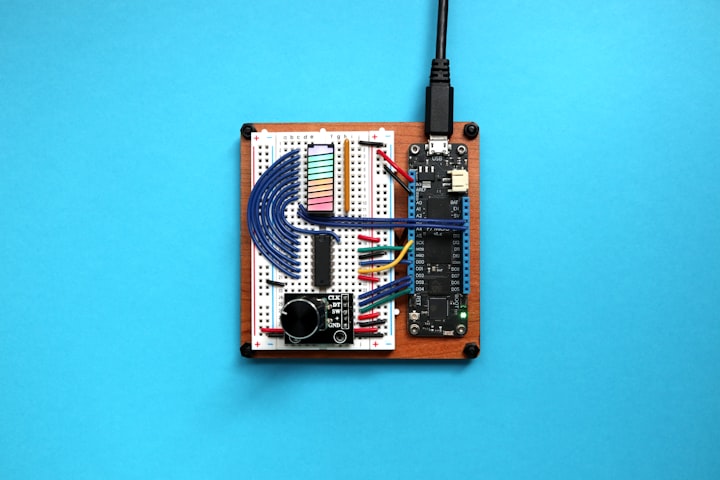Feature Overload: Why Are Consumer Electronics So Difficult?
Electronics

Everything appears to be so difficult these days, especially anything electronic... which includes more and more things every day.
Why are they so difficult to understand? "Hey, our phone shoots photographs, sharpens knives, mows the grass, pays your bills, drives your vehicle, and prepares supper all by itself!" Please give us a rest!
Unfortunately, the reason so many electronic items are crammed with features is that adding features to them is quite inexpensive! Do we, as customers, truly desire or want such features? That's a completely other question. Frequently, the answer is no. However, manufacturers often include them solely to promote that they have additional functions.
It is far more expensive to carefully assess which features are most desired and to build goods that are feature-rich while remaining simple and straightforward to use. As a result, this critical step is frequently skipped.
Have you ever struggled to figure out how to programme your VCR? Have you ever considered that it might not be your fault? It's the developers' responsibility for creating a poor user interface for the product. And you believe they are bad? Consider utilising a VCR/DVD combo player!
There is a second reason why manufacturers continue to jam more dubious features into their goods. Sales of devices such as cell phones have slowed since most individuals who desired one already had one. As a result, phone makers continue to add features in an attempt to identify ones that would entice customers to buy new phones. They are always on the lookout for the next great feature that would entice users to buy a new phone only to acquire.
Similarly, digital camera makers continue to release devices with ever-increasing megapixel counts. Two megapixels, then 3.2, then 4.0, then 5, then 6, 7, and finally 8. Do customers require cameras with 7 or 8 megapixels? Not even close. A 3.2 megapixel camera is ideal for taking photographs or sharing photos online.
So, why do manufacturers continue to expand the capability? As previously said, it is for two reasons: 1) to promote that they have it, and 2) to get consumers to toss their old camera into a drawer and buy a new one.
Our advice: Take a close look at the features available in the items you're considering. Don't automatically assume that a product with more features (or a higher number) is the superior option. Often, it is not; it is simply more difficult to utilise! And there's more that may go wrong.
Before I get started, a few of things need to be mentioned. First and foremost, I believe it is critical that I live what I teach as often as possible. This is not always the case, and it is for this reason that I am sometimes dissatisfied with myself. With that in mind, I am a proponent of open communication. I'm not a fan of hidden motives. I also trust in people's kindness and strive to give them the benefit of the doubt. Furthermore, I feel that in order to believe in individuals, chances must be taken in order for mutual respect to flourish. With that in mind, I'm going to take a chance and hope that no one notices.
The purpose is to create a new term that will be approved into the Oxford English Dictionary. There are a few criteria that must be completed in order for a word to be successfully included into the OED, which you may verify for yourself, but I believe I have my plan and term ready. What I'm hoping for is that what I'm going to reveal will not be seized by someone else, so destroying a long-held ambition of mine. I'm going to tell you about my concept, and I hope you like it, but it's still my idea to pursue and make a reality.
One of the criteria for inclusion in the OED is the absence of a term with a comparable definition. In other words, the term must be required. That's difficult, but I believe I have it. There is no term in the English language that implies "a person or object one dislikes." "One's most despised person or object." This is the polar opposite of "favourite." We can convey the notion, but there is no one phrase that encompasses "most loathed" with the same efficiency that "favourite" contains "most desired or loved." "Malrite," I believe, can bridge this language divide.
This shocks me since languages generate words to communicate what they need to say. It appears to me that there has been enough wide aggressiveness and localised indifference, jealousy, and maliciousness in the history of English-speaking nations to necessitate the creation of this phrase. But, until I looked into internet advertising strategies, I began to wonder the need for such a phrase.
About the Creator
Rameez Shah
I Am A Professional writer
Reader insights
Nice work
Very well written. Keep up the good work!
Top insights
Excellent storytelling
Original narrative & well developed characters
Masterful proofreading
Zero grammar & spelling mistakes






Comments
There are no comments for this story
Be the first to respond and start the conversation.